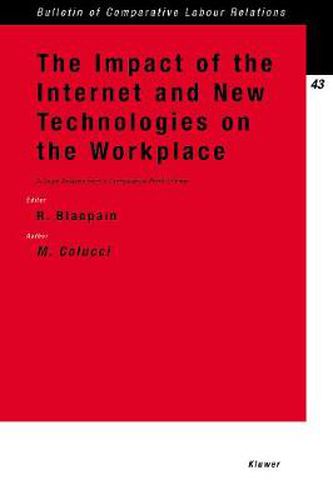Readings Newsletter
Become a Readings Member to make your shopping experience even easier.
Sign in or sign up for free!
You’re not far away from qualifying for FREE standard shipping within Australia
You’ve qualified for FREE standard shipping within Australia
The cart is loading…






This title is printed to order. This book may have been self-published. If so, we cannot guarantee the quality of the content. In the main most books will have gone through the editing process however some may not. We therefore suggest that you be aware of this before ordering this book. If in doubt check either the author or publisher’s details as we are unable to accept any returns unless they are faulty. Please contact us if you have any questions.
The regulatory architecture available for cyberspace law still seems incapable of conceiving, much less resolving, the new issues of privacy raised by the use of the Internet in the workplace. This analysis of the thorny problems in this area of the law attempts to clarify the nature of the conflicts and disputes that arise and that are likely to continue to arise. It is a detailed comparative treatment of the subject, analysing the relevant law both at the international level and in six major national jurisdictions. The author first examines the international jurisdictional problems related to the Internet and new technologies. Starting from an economic analysis of the law of cyberspace, the author demonstrates that the problem of conflicting legal rules may be solved by adopting new laws, regulations and guidelines governing the Internet. The second part explores the ways in which the Internet and the introduction of new information technologies has dramatically affected the world of work and individual rights. The author analyses the origins, limits and boundaries of these rights, and makes a comparative analysis of the relevant constitutions and statutes in both common law and civil law. Finally, an examination of the legal systems of the USA, the UK, France, Germany, Italy, and Japan, and of their responses to the new Internet-related issues, enable the author to propose effective ways to achieve a better balance between the employee’s right to privacy and the responsibilities of the employer in the new electronic environment.
$9.00 standard shipping within Australia
FREE standard shipping within Australia for orders over $100.00
Express & International shipping calculated at checkout
This title is printed to order. This book may have been self-published. If so, we cannot guarantee the quality of the content. In the main most books will have gone through the editing process however some may not. We therefore suggest that you be aware of this before ordering this book. If in doubt check either the author or publisher’s details as we are unable to accept any returns unless they are faulty. Please contact us if you have any questions.
The regulatory architecture available for cyberspace law still seems incapable of conceiving, much less resolving, the new issues of privacy raised by the use of the Internet in the workplace. This analysis of the thorny problems in this area of the law attempts to clarify the nature of the conflicts and disputes that arise and that are likely to continue to arise. It is a detailed comparative treatment of the subject, analysing the relevant law both at the international level and in six major national jurisdictions. The author first examines the international jurisdictional problems related to the Internet and new technologies. Starting from an economic analysis of the law of cyberspace, the author demonstrates that the problem of conflicting legal rules may be solved by adopting new laws, regulations and guidelines governing the Internet. The second part explores the ways in which the Internet and the introduction of new information technologies has dramatically affected the world of work and individual rights. The author analyses the origins, limits and boundaries of these rights, and makes a comparative analysis of the relevant constitutions and statutes in both common law and civil law. Finally, an examination of the legal systems of the USA, the UK, France, Germany, Italy, and Japan, and of their responses to the new Internet-related issues, enable the author to propose effective ways to achieve a better balance between the employee’s right to privacy and the responsibilities of the employer in the new electronic environment.